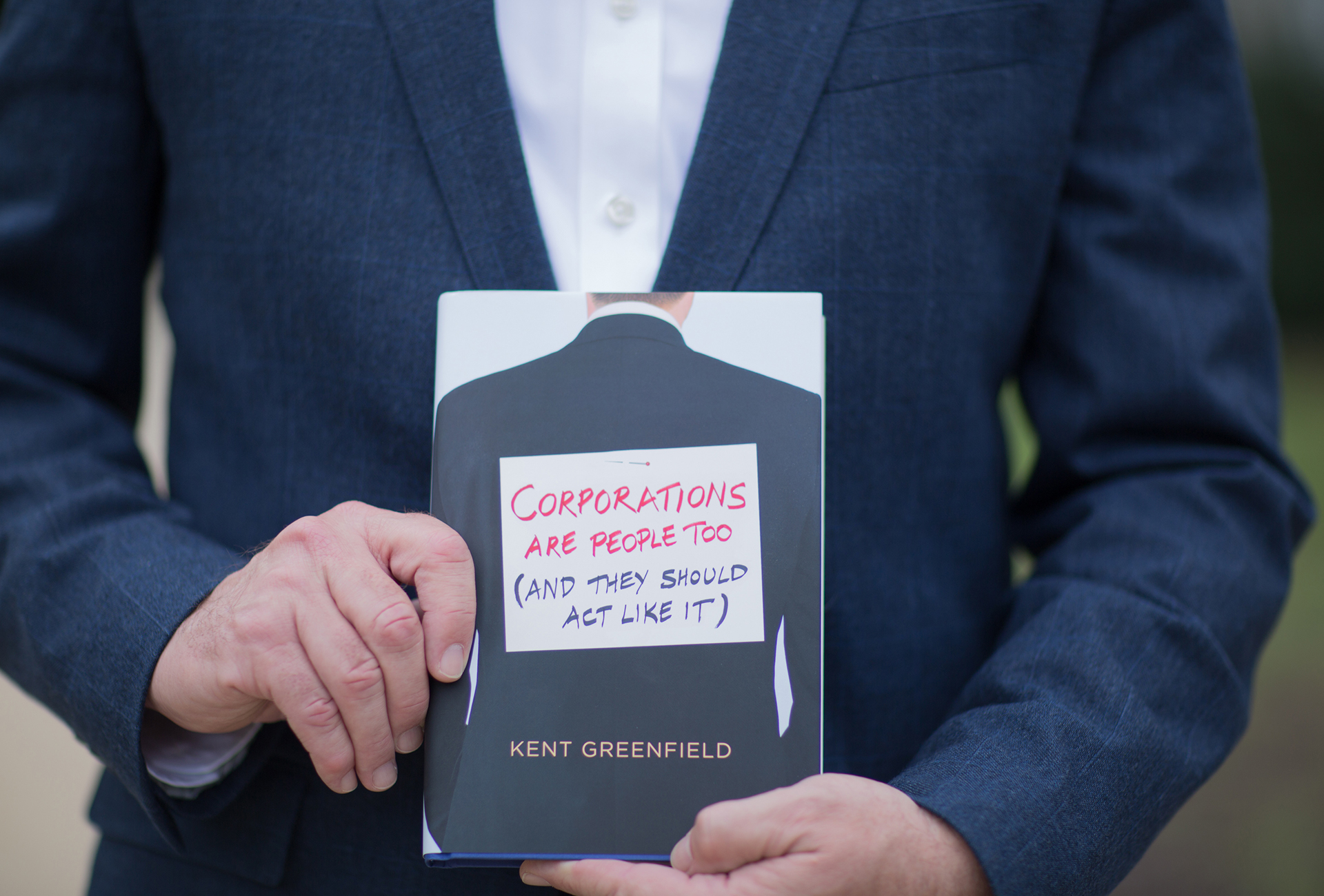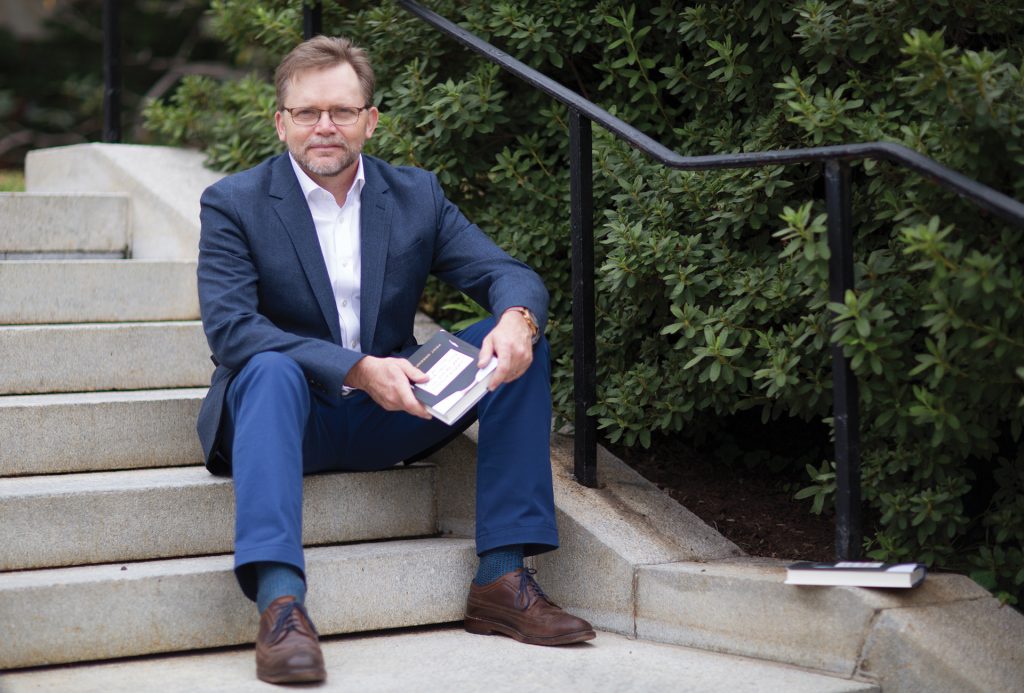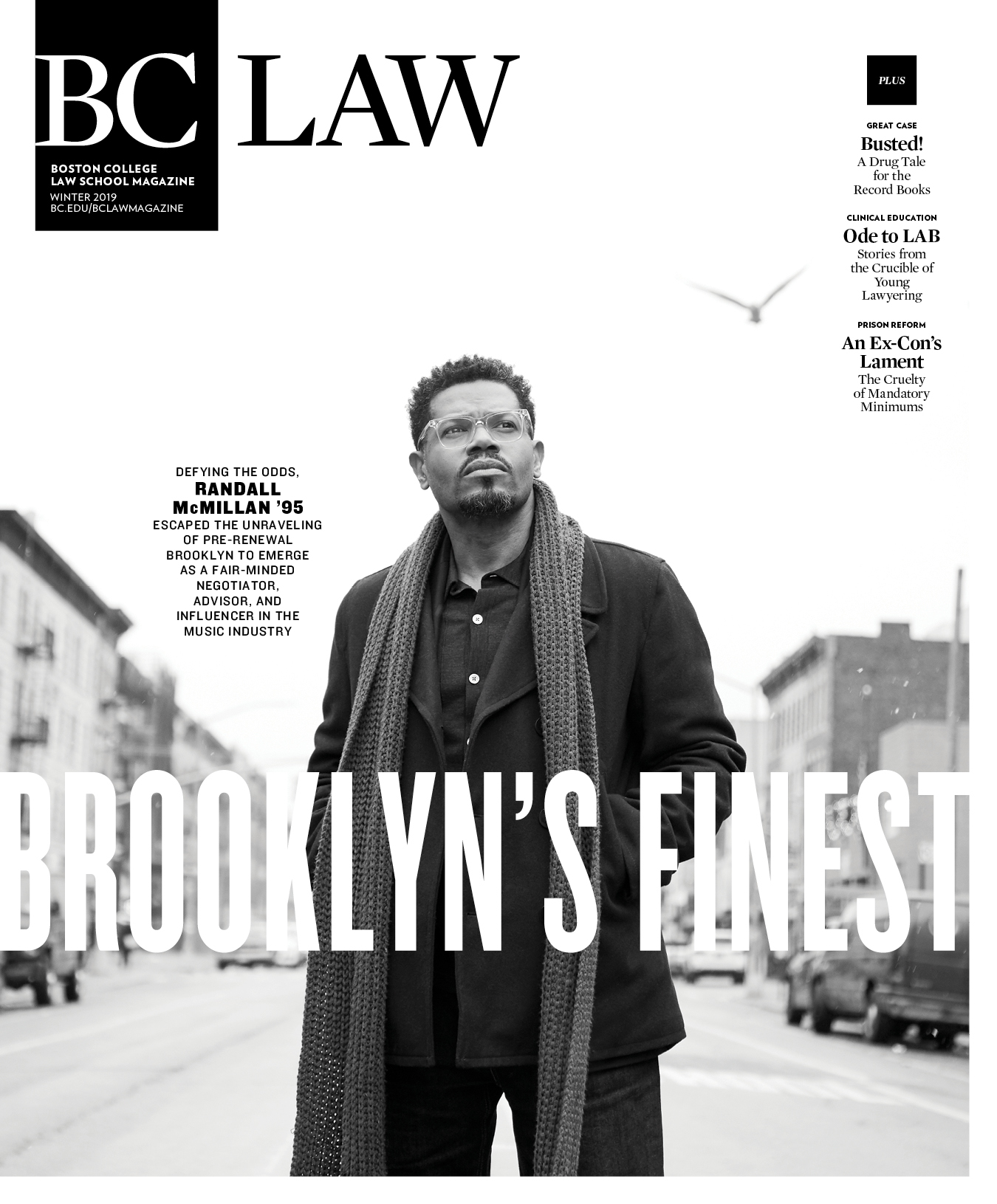In his new book, Corporations Are People Too (And They Should Act Like It) (Yale University Press), BC Law Professor Kent Greenfield turns his attention to Citizens United, the Supreme Court case ruling that corporations have the right to free speech—and, thus, the right to contribute to political campaigns. An expert on constitutional and corporate law, Greenfield draws on both fields to present a radical but practical approach to the controversy that the case provoked.
CLEA SIMON: Why this book now?
KENT GREENFIELD: Citizens United was decided in 2010, and that’s when the issue of corporate rights really jumped to the forefront of the American debate. I’ve been working on it pretty actively since then.
CS: What are your hopes for this book?
KG: There was a lot of energy in the years leading up to Citizens United to question corporate power but to use corporate governance mechanisms to adjust that power. The irony of Citizens United was that people got so scared, they then spent their energy trying to cabin corporations and push them out of the public square. I want people to go back to the notion that the real problem here is the lack of corporate citizenship, not the presence of it.
CS: A major point of the book is how stakeholders other than shareholders need to have a role in governance. Why does this matter?
KG: Corporations are among the most powerful, biggest economic powers in the world, right? They rival the power of nations. Yet they are governed, at least in the United States, by a very homogeneous set of managers who tend to prioritize the interests of shareholders above all. And in America, most shareholder capital is held by a sliver of the richest Americans.
If corporations are managed on behalf of that sliver, and use all their power on behalf of that sliver, of course they’re not going to be good citizens.
The real way to deal with that problem is on the corporate governance side. That is, to encourage corporations to have a much more robust social contract that includes public welfare, that includes the interests of their employees, the interests of consumers and suppliers.
CS: Encourage? By what means?
KG: You can encourage it by way of consumer pressure; you can encourage it by way of investor pressure. There are also regulatory and legal mechanisms. One is to change the nature of fiduciary duty so that managers and companies are required to take into account the interests of all their stakeholders.
In Germany, half of the super-visory board of large corporations—like Mercedes-Benz, BMW, and Siemens—is elected by employees and represent the interests of employees. This is something that has been periodically raised as a possibility in the US, and is coming back into our conversations again. Elizabeth Warren has raised it as a possibility.

CS: What role does your book play in this argument?
KG: I don’t think that the right answer to the problem of corporate power is to take away all corporate rights. That’s simplistic and ultimately counterproductive. The right answer is to require corporations to pay more attention to the people within them.
I grew up in a little town where the good jobs were at a hosiery mill run by a local family. When that family sold the factory to a big company out of town, the factory was closed and all those people were thrown out of work. The decision-makers far away thought they could make more money by making those socks and pantyhose somewhere else. I think businesses ought to be in the business of creating wealth. I just think that one cannot look at shareholder gain as the only measure of that wealth.
CS: How does Corporations Are People Too fit into your continuum of scholarship?
KG: I couldn’t have written this book without all of the work that I’ve done over two decades in corporate governance. You have to know that in order to see the defects in the Citizens United decision.
At the same time, I couldn’t have written this without the work I’ve done over the last twenty years in constitutional law. Because BC has allowed me to be this odd duck academically, and to bridge areas of study that most scholars don’t, I was able to write this book.
Read the full transcript of the Greenfield interview here.



